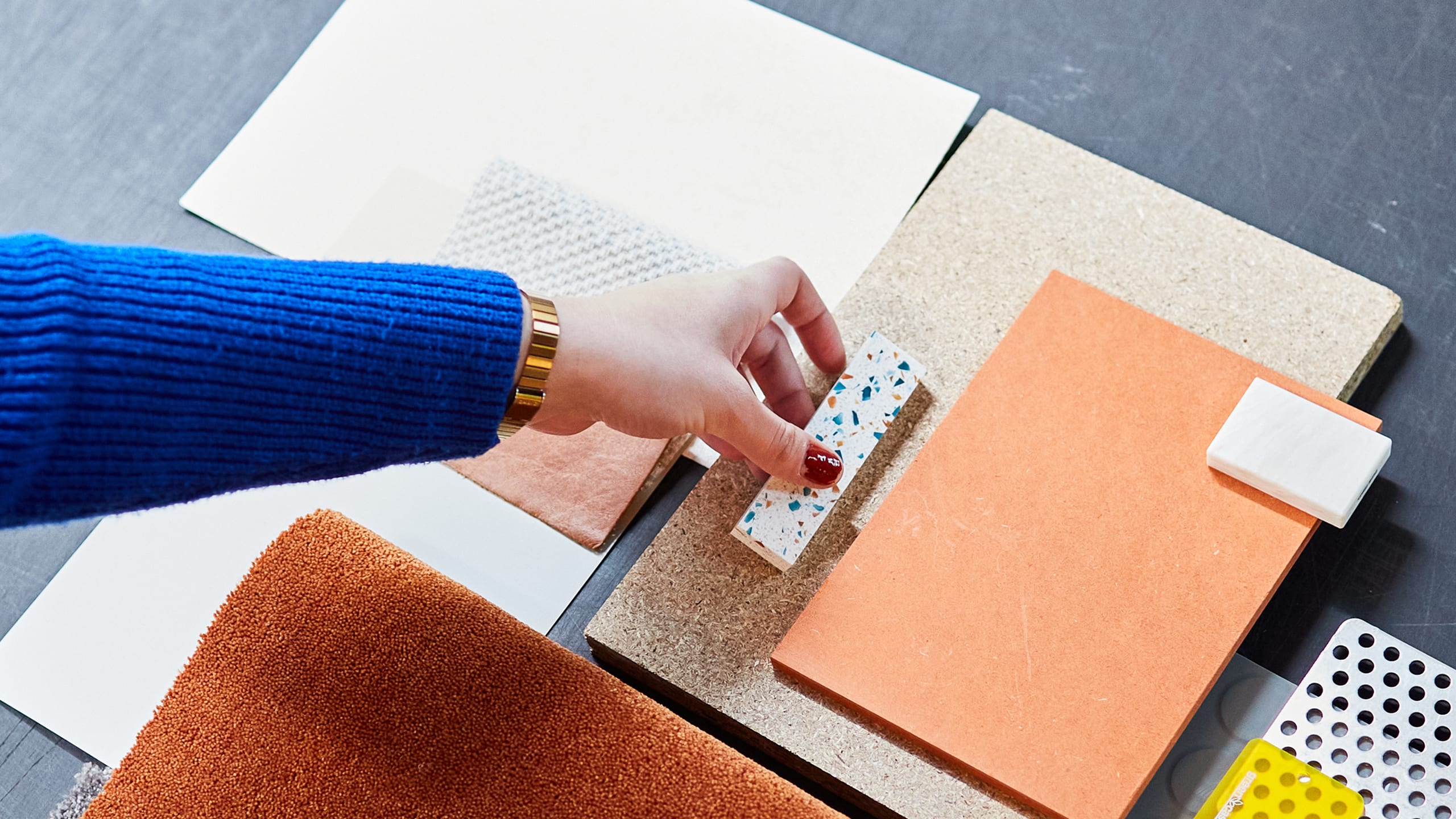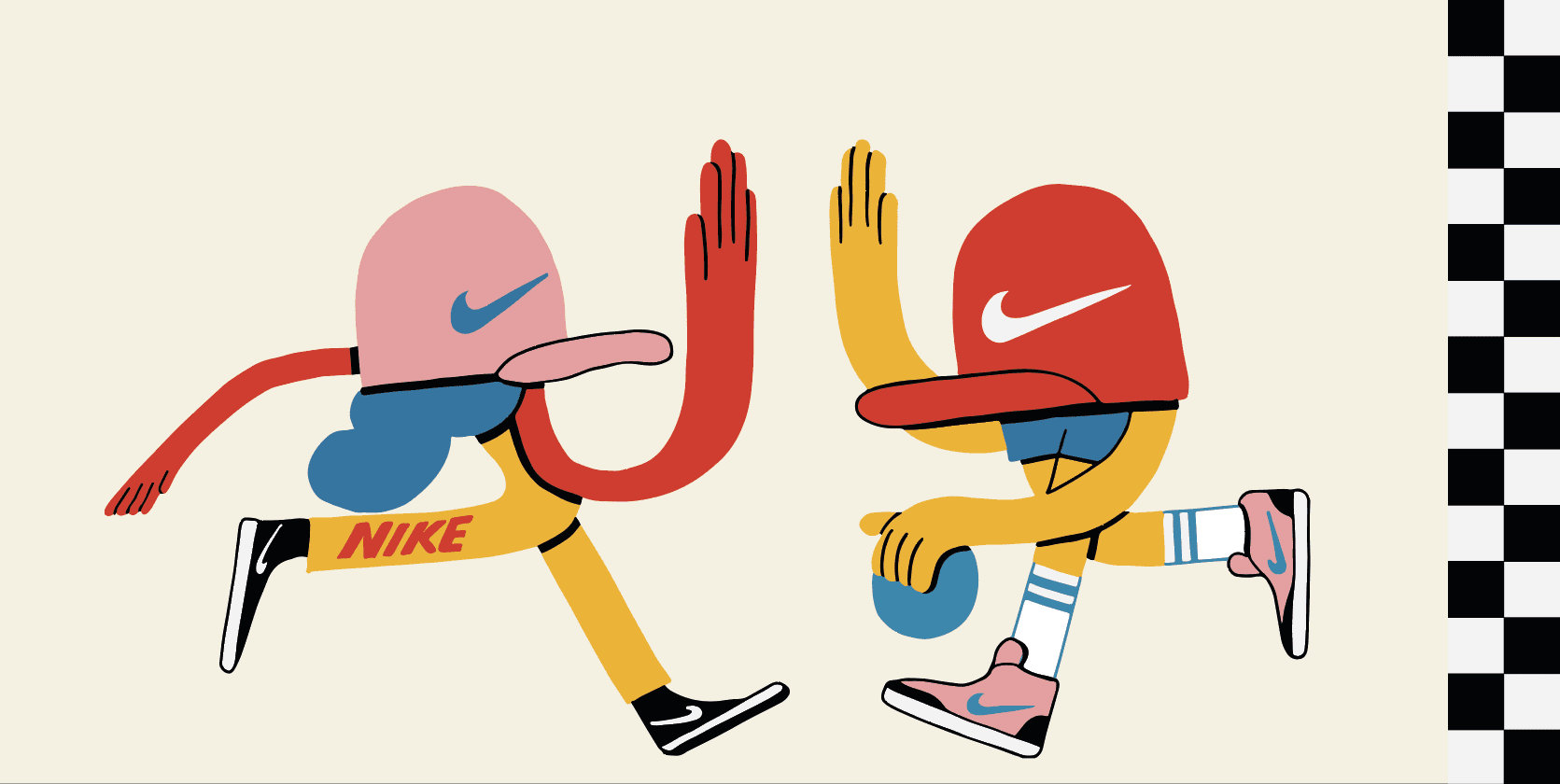TOOxTOO
Issue #115
Megan Hotson
17/06/22
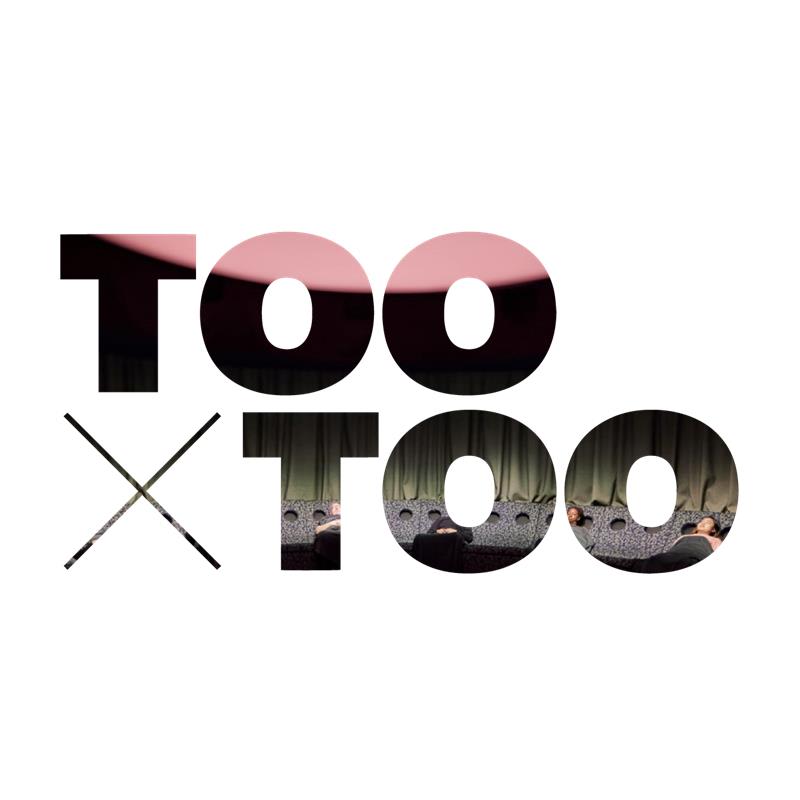
Welcome to your weekly dose of TooXToo, this week featuring Salvation army’s answer to Balenciaga, Duolingo’s taqueria, London’s new immersive experience: Dream machine, and the Ad-generating QR codes sewn into samsoe samsoe products…
Salvation army’s answer to Balenciaga
Fashion house Balenciaga have caused quite the stir after unveiling their new line of distressed Paris trainer shoes, which are available to buy for €1,850….
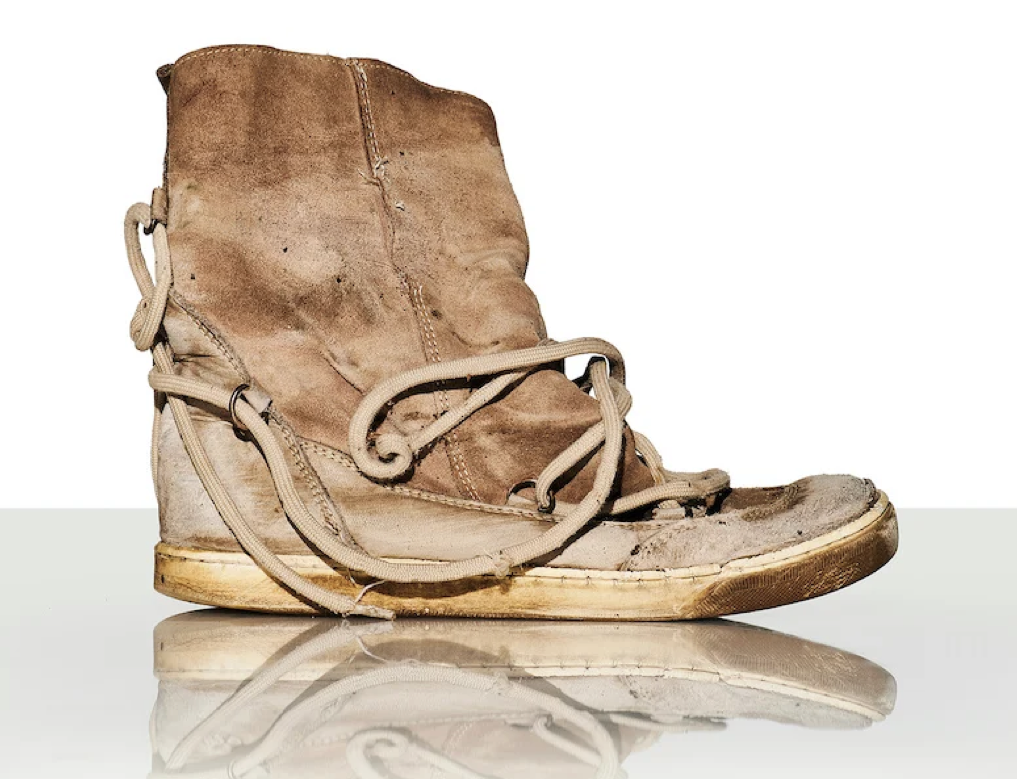
Acknowledging Balenciaga’s subversion of what a luxury brand is or could be, the Dutch salvation army has created its own collection of ‘Truly destroyed’ shoes in response. The key difference with the latter collection from the Salvation army is that this footwear is not purposely worn out, and shabby – their battered aesthetic is the result of being worn by real people who have been homeless for years.
Shoes featuring in this line include “Maria’s Truly Destroyed Sneakers”: ’18-month-straight worn effect, rain, wind and cold beaten, mud-stained, illegible logo, does not fit to size.’ Each pair of these distressed and worn shoes will retail at 1,450 Euros with all proceeds will going to the Salvation army.
Balenciaga have fetishized what poverty looks like for those who are challenged by it day-to-day by stamping a hefty price tag on the appearance of its impact. Despite this, what their collection does do, is grab people’s attention. Attention that raises awareness of the effects of living a life a world away from luxury. However, Balenciaga fail where the salvation army succeed in being able to donate the proceeds to a more charitable cause.
Duolingo’s taqueria
Duolingo – the nation’s favourite language learning app. A means to tidy up on some GCSE linguistics, or somewhere to learn some new phrases or conversation for that upcoming foreign holiday…
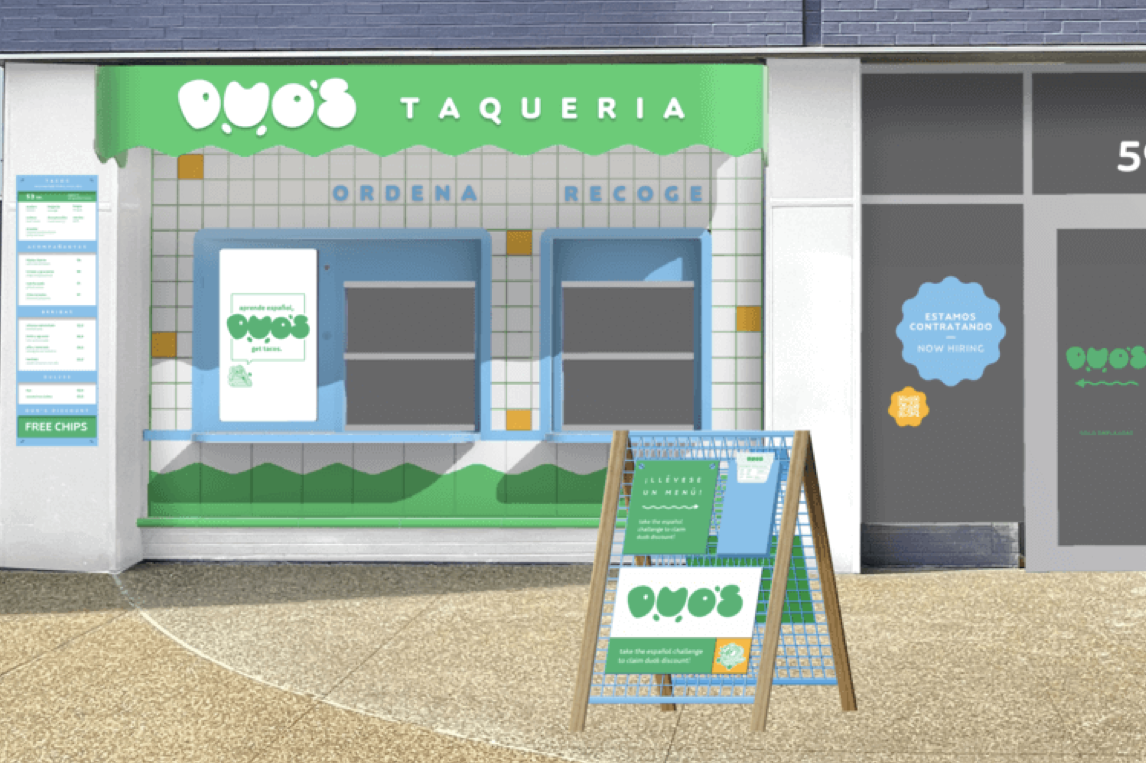
This highly celebrated app has just levelled up with their recent decision to open its very own taqueria. The hope is that by incorporating a physical space into their offering, they will encourage even more people to try their tongue at a new (or forgotten) language.
When customers order at Duo Lingo’s new eatery, they will be given a free or discounted meal by participating in a Spanish challenge. Customers will be asked to answer randomly generated questions from their app. The challenge will be easy to take part in, and fully integrated into the queuing and ordering process.
We have seen similar initiatives from brands prior to this, who have created physical pop-ups or spaces to bring their product or service to life. For example – Corona collaborated with Duo themselves, creating a vending machine to celebrate the launch of their new seltzer and get more people speaking Spanish.
Small nudges built into hospitality experiences like these are a great way to remind people of their potential to incorporate learning a language into a busy schedule.
London’s new immersive experience: Dream machine
May 2022 welcomed the opening of a new, immersive installation in London: The Dream machine. Designed by ‘Collective Act’ it brings together different artists alongside composer Jon Hopkins, forming the first artwork to be experienced with closed eyes…
The installation is curated using a mixture and layering of different lights, and music and will conjure up different experiences depending on your brains own interpretation. Expect to hallucinate, and tap into the “limitless potential of the human mind”.
The inspiration for the experience came from artist Brion Gysin’s 1959 invention of an artwork to be viewed with your eyes closed. Much like Gysin’s piece, the installation will harness a combination of the senses, and has been described as one of the largest scientific research projects to take a deep dive into the collective human psyche.
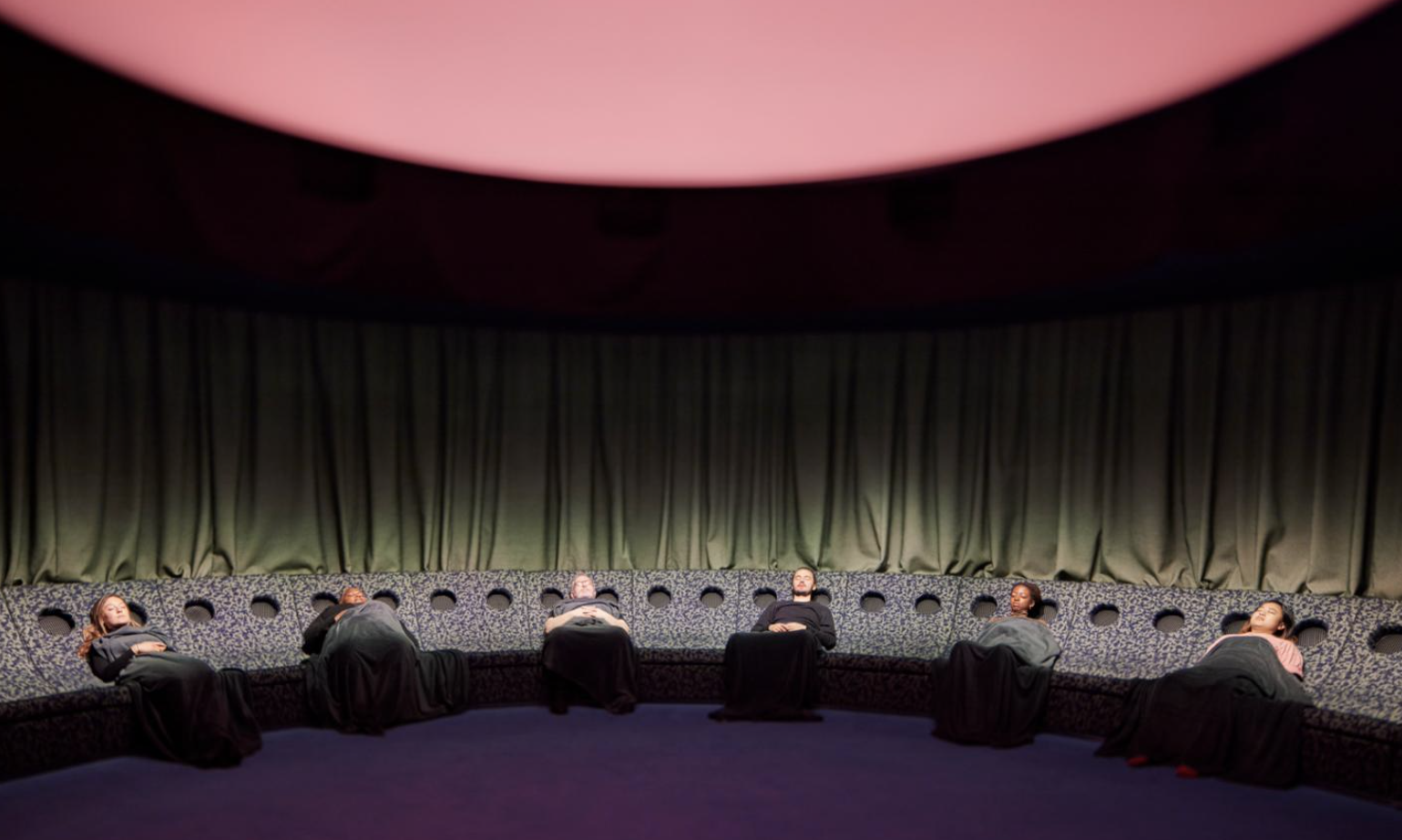
The work will tour London, Cardiff, Belfast, and Edinburgh until this October – visitors can experience this spectacle for free. The concept behind this immersive artwork is not just useful for scientists to understand the brain’s potential, but also interesting for brands to observe the power of tapping into a combination of the senses to fully immerse a consumer.
An experience like this allows the parameters of human perception to be pushed, providing people with the highly desired escapism from the rote of daily life.
Ad-generating QR codes sewn into samsøe samsøe products
Re-selling, thrifting, and re-making are trends born out of a desire to be more conscious of the impact the fashion industry has on the environment. Clothing brand Samsøe Samsøe wants to ensure their products are re-used and has as a result added smart QR labels to simplify the future resale process for their consumers.
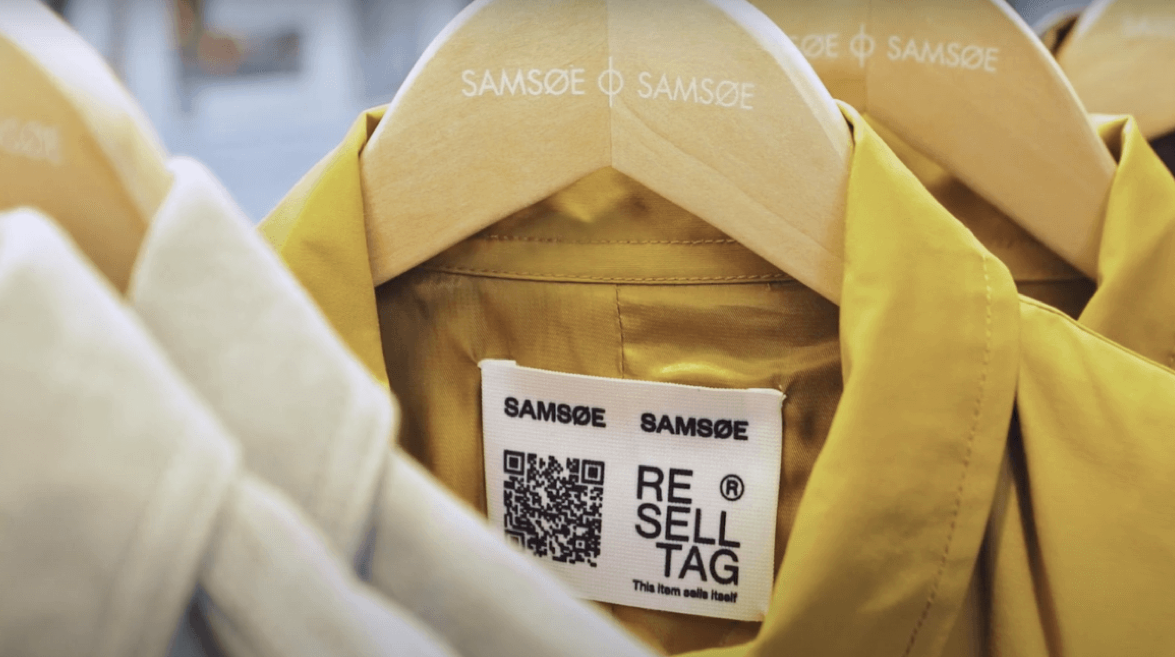
These smart labels will be sewn into each garment, and the QR embedded within the label will be linked to a data set specific to a clothing item’s fabric, colour, size, and original price. Cleverly, upon deciding to get rid of any given item from their closet, all a customer must do is scan the code and connect to a Facebook account- then, an ad is created in response and automatically populated with the item’s details and photos. All that is left for the seller to do, is state what price they want to sell their item for.
Effectively, this brand is facilitating the next level up from re-selling: digital, autonomous re-selling. This is not only clever in what it aims to do but removes barriers that might prevent consumers from re-selling clothes and being more environmentally conscious.
Extending a product’s lifecycle using a tech-driven solution is expected to be utilised by multiple brands looking ahead to reduce the impact of one of the most impactful industries in the world…
